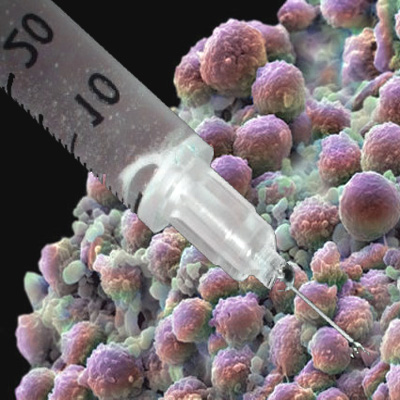A large reason why cancer is such a deadly disease is because cancerous cells can “communicate” with each other. That is, these diseased cells can create certain signaling molecules that tell other diseased cells to perform a certain action. These signals help cancer multiply and migrate, spreading the disease and worsening symptoms. Traditionally, many pharmaceuticals utilize methods that block the signaling molecules from working; however, cancer cells can evolve past this barrier by producing so much of the signaling molecule that the drug is overpowered and rendered ineffective.
Researchers from Baylor College of Medicine recently developed a new drug that, rather than inhibit signaling molecule activity, simply destroys the molecule. In a study recently published in Proceedings of the National Academy of Sciences, this team of scientists “studied a molecule called the steroid receptor coactivator 3 (SRC-3), which is also amplified in breast cancer 1 (AIB1). [SRC-3] plays an important role in breast cancer, but also in lung, ovary, prostate and pancreatic cancer.” Dr. Jin Wang, one of the two senior authors of the paper, noted specifically that, “for years it’s been known that eliminating SRC-3 from cancer cells results in the cells slowing down their proliferation and migration. We wanted to target SRC-3 because it regulates not one but many signaling pathways inside cancer cells.”
Image Source: JACOPIN /BSIP
Dr. Wang and his team developed a drug, SI-2, that works by penetrating cancerous cells and degrading the SRC-3 molecule. The researchers don’t exactly know how SI-2 works on a biochemical level, but their data indicates that with an increasing dosage of SI-2 comes a decreasing population of SRC-3 molecules. A low population of SRC-3 molecules within cancerous cells correlates to cancer cell death because the cells no longer produce enough SRC-3 to maintain their growth.
“SI-2 is the next step in a long effort to develop drugs against a key group of oncogenic drivers of many cancers, the SRC-family of coactivators. The paper reveals novel compounds with good efficacy against cancers and low toxicity for normal cells and animals,” said Dr. Bert W. O’Malley, the other senior author of this report.
Feature Image Source: Cancer Vaccine by AJC1










